April 15, 2025 | 22:01 GMT +7
April 15, 2025 | 22:01 GMT +7
Hotline: 0913.378.918
April 15, 2025 | 22:01 GMT +7
Hotline: 0913.378.918
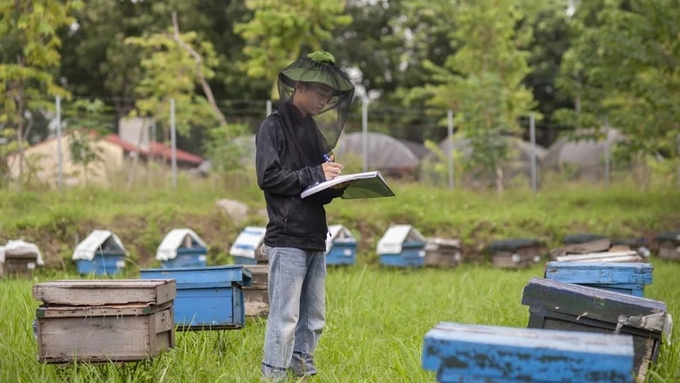
Students of the Research Center for Tropical Bees and Beekeeping under the Faculty of Agronomy, Vietnam National University of Agriculture, examine bee colonies on a daily basis.
Hanoi University of Science and Technology and Vietnam National University of Agriculture are the two main public universities participating in the project in Vietnam. Teachers and students at the Vietnam National University of Agriculture strive to find solutions to the most pressing problems in the agricultural sector through constant teaching and research.
One of the University's top priorities in recent years has been to conduct research on high-value agricultural products that are resilient to climate change and most notably honey.
Vietnam exports approximately 54,000 tons of honey on average annually. However, Vietnamese honey is mainly used as an ingredient for industrial processing. Furthermore, consumers in the domestic market favor imported honey products.
Experts believe that the quality of Vietnamese honey has ample room for improvement. This is mainly due to the fact that farmers often harvest honey too early and improperly. Moreover, they use a high amount of impurities during the farming process to emphasize quantity over quality. On the other hand, the bee industry must raise its overall quality to diversify export markets.
Assoc. Dr. Pham Hong Thai, Director of the Research Center for Tropical Bees and Beekeeping under the Faculty of Agronomy, Vietnam National University of Agriculture, is passionate about creating honey with world-class quality.
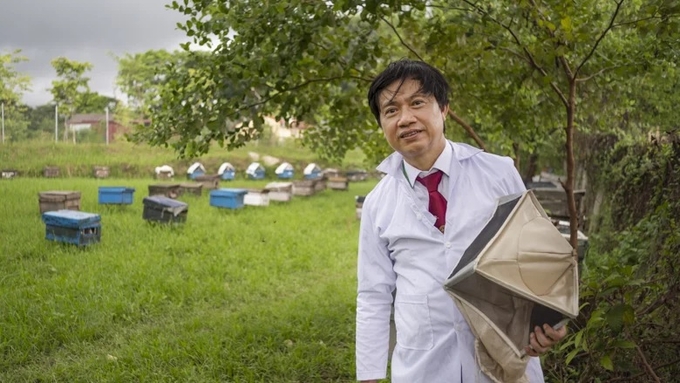
Assoc. Dr. Pham Hong Thai, Director of the Research Center for Tropical Bees and Beekeeping.
Dr. Thai and his colleagues have succeeded in testing the method of beekeeping in double-layered beehives to increase the purity of honey. This method helps to increase the quality because it removes pollen and larvae from the honey as well as reducing the water content. The Research Center has transferred this technique to farmers in several provinces including Son La and Nghe An. It is estimated that beekeeping in double-layered beehives can help farmers sell honey for twice the price.
Additionally, the Research Center is piloting the use of technology in beekeeping and honey quality monitoring. The Center is cooperating with multiple companies in Hanoi and Dak Lak to put this new technology model into practice.
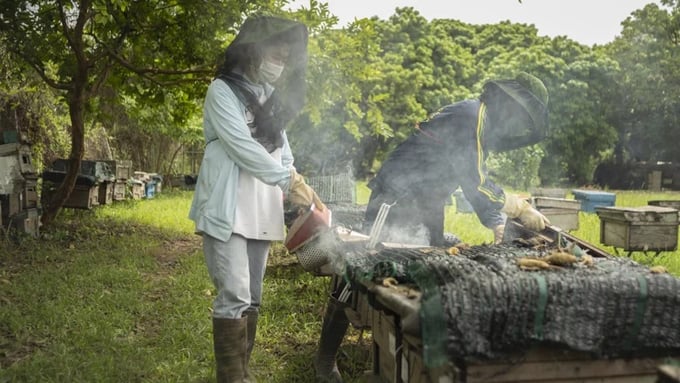
The Research Center for Tropical Bees and Beekeeping has successfully tested beekeeping in double-layered beehives to improve honey quality.
The aforementioned system includes sensors to monitor the temperature, humidity and honey production levels of the bees. The utilization of blockchain technology will allow traders and consumers to seamlessly access product information through smartphone applications. The technology will also help farmers or companies participating in the supply chain to offer higher prices when their farming process as well as the quality of the honey is verified.
With the support of the Support for Autonomous Higher Education (SAHEP) Project, Dr. Thai and students of the Faculty of Agronomy will have access to advanced equipment to serve teaching, testing and research on bees. Subsequently, their efforts will support the Vietnam's bee industry to develop sustainably and meet the needs of the market.
“It is very difficult to draw accurate conclusions about the causative agent when we study the temperature and humidity without the help of equipment. These devices have assisted entomology students greatly in their studies and practice. For example, a business can request a quality analysis for the sugar content in the honey. When the students finish their studies, businesses will be more likely to cooperate with the university”, shared Mr. Thai.
Microalgae is another area of research with great potential. They are small organisms that can bring significant health value.
Microalgae are often used in the production of functional foods, cosmetics, animal feeds and biological fertilizers. In addition to providing a rich source of omega-3 fatty acids, certain strains of microalgae can contain up to 70% protein. Microalgae are capable of storing CO2 from the atmosphere and contribute to mitigating the damaging effects of climate change as a result.
At the Institute for Microalgae and Pharmacosmetics under the Faculty of Biotechnology, Assoc. Dr. Nguyen Duc Bach and his colleagues have been storing the most optimal strains of microalgae in the country for teaching, research, breeding and other practical application.
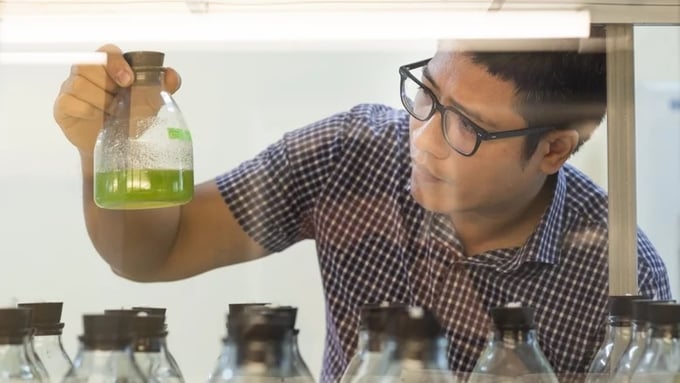
At the Faculty of Biotechnology, Assoc. Dr. Nguyen Duc Bach has a significant impact on the study and practical use of microalgae.
Algae is an indispensable food source for aquatic larvae in their early stages. As a major exporter of aquatic products, Vietnam must place emphasis on multiplying its algae biomass. Dr. Bach's Institute is currently providing microalgae seeds to small establishments throughout the country.
Dr. Bach led a study funded by SAHEP in 2020 to provide solutions to help Vietnam expand the production of spirulina, a green microalgae containing high levels of protein, vitamins and antioxidants. Research shows that spirulina production fails to meet domestic demand, so consumers often resort to purchasing imported products.
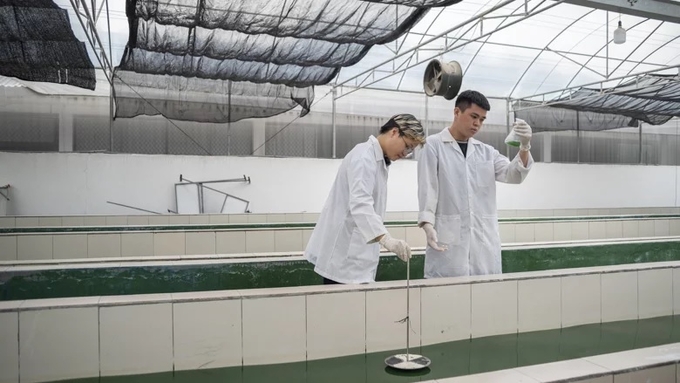
Students at the Institute for Microalgae and Pharmacosmetics examining algae biomass propagated in a raceway tank.
Within the framework of a component project under SAHEP, Dr. Bach and his colleagues carried out a research on the synthesis of antioxidant-rich products from three species of microalgae. The research has resulted in the production of hard capsules with antioxidant capacity to help slow down the aging process of the eyes as well as improve vision. Consequently, Vietnam National University of Agriculture has established a spin-off company to commercialize the product that has been certified by the Ministry of Health.
“The research product only generated a small amount of revenue initially, but it is an encouragement for us to continue research and development, as well as contribute to the autonomy of the University”, said Dr. Bach.
The government granted Vietnam National University of Agriculture autonomy in the pilot category in 2015. Accordingly, the university can decide on its finances, personnel as well as design curricula more tailored to actual needs. The SAHEP project has created the necessary leverage in enhancing the Academy's capacity for a more comprehensive autonomy.
For Dr. Thai, the autonomy also encourages students and the faculty to be more creative. According to him, "University autonomy is the current popular trend around the world. As a result, investments in education will be higher and education will also be more productive."
Translated by Nguyen Hai Long
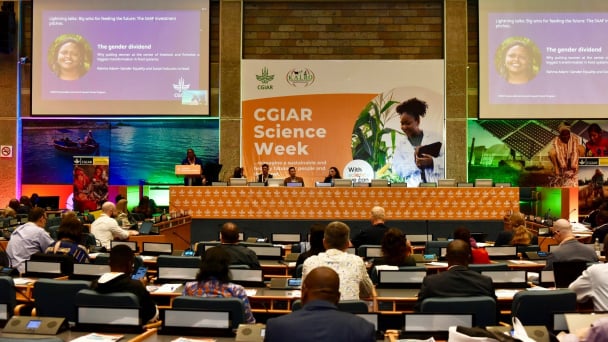
(VAN) The CGIAR’s Sustainable Animal and Aquatic Foods (SAAF) program represents a new approach that emphasizes the transformation of food systems toward sustainability.
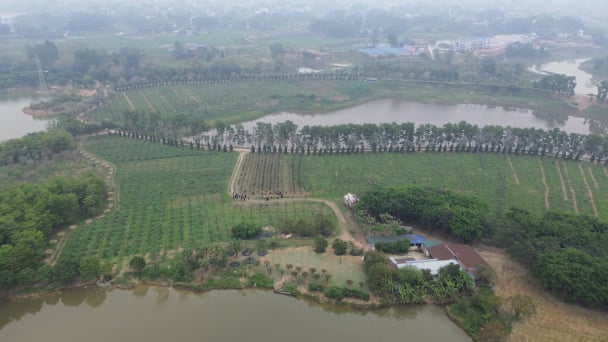
(VAN) Scientists assume that industrial agriculture has been 'outdated.' As a result, a comprehensive overhaul or a revolution in the direction of embracing ecological agriculture is needed.
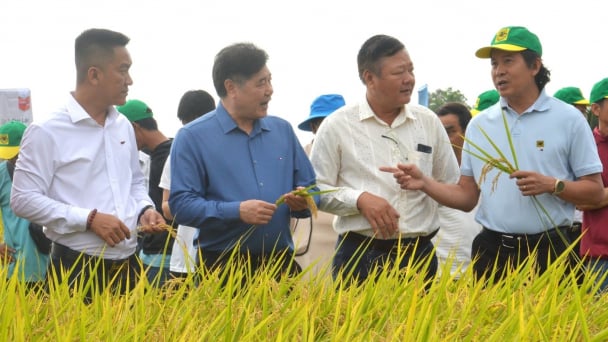
(VAN) The results from pilot fields are catalyzing the expansion of the One million hectares of high-quality, low-emission rice project in Kien Giang.
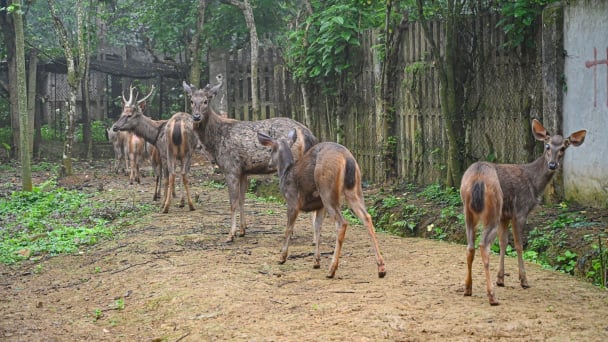
(VAN) On the morning of April 11, Cuc Phuong National Park received 18 individuals of endangered and rare wild animals from Da Nang city.
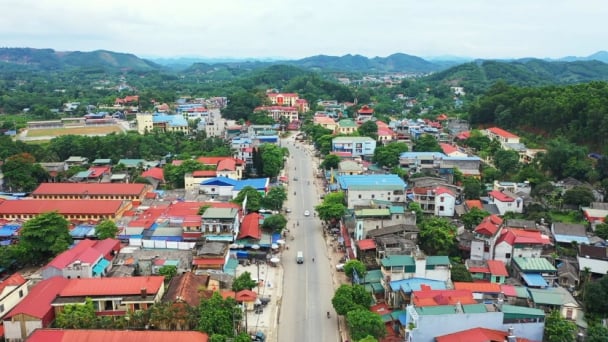
(VAN) FAO supports Vietnam in enhancing survey sampling techniques for the 2025 nationwide agricultural and rural census.

(VAN) By participating in the green transition, manufacturers become an indispensable part of the circular economy, contributing to resource optimization and environmental protection.
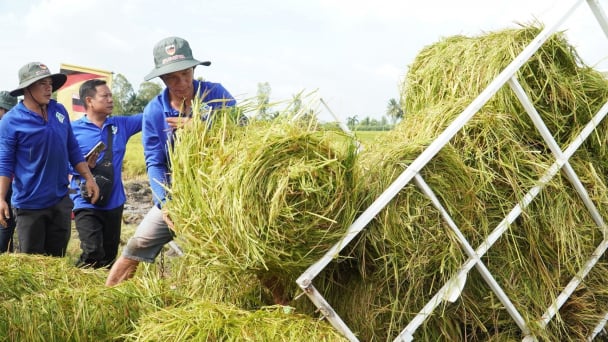
(VAN) The One Million Hectares of High-Quality and Low-Emission Rice Program can generate nearly 14 million tons of straw annually, posing an urgent requirement to diversify straw-based products.